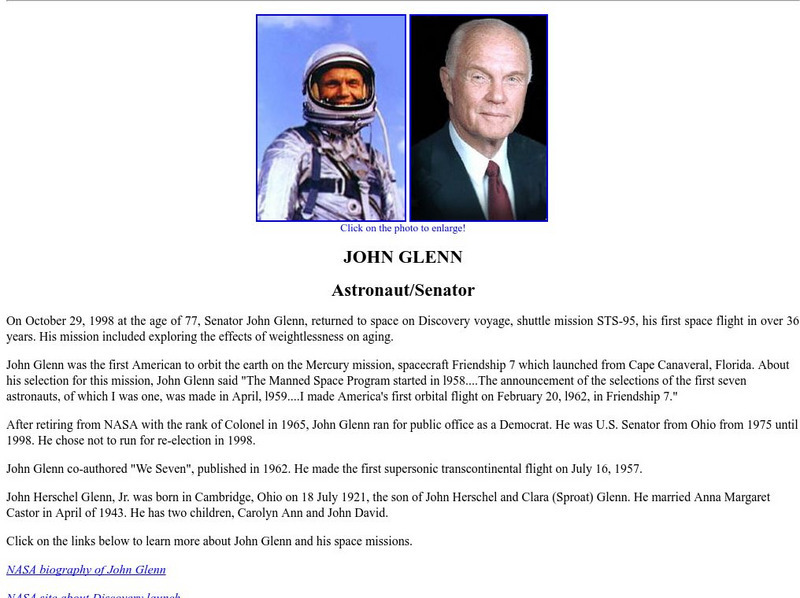Smithsonian Institution
National Air and Space Museum: America by Air: Early Commercial Aviation
Commercial airlines took flight soon after the Wright brothers' famous first flights. Read about how the U.S. government encouraged the development of air travel.
Smithsonian Institution
National Air and Space Museum: Exploring the Planets: Tools of Exploration
Part of the National Air and Space Museum's online exhibition about Exploring Planets, this describes and gives visuals of telescopes, probes and fly-by aircrafts, orbiters, and landers as current methods for earth and airborne...
TeachEngineering
Teach Engineering: Dangerous Air
By tracing the movement of radiation released during an accident at the Chernobyl nuclear power plant, students see how air pollution, like particulate matter, can become a global issue.
Smithsonian Institution
National Air and Space Museum: Exploring the Planets: Early Discovery
This section of the exhibition gives the history of the discovery and study of space starting with the Greeks and Romans through to the early 1900's.
TeachEngineering
Teach Engineering: By Land, Sea or Air
In this lesson, students learn that navigational techniques change when people travel to different places - land, sea, air and in space. For example, an explorer traveling by land uses different methods of navigation than a sailor or an...
Ducksters
Ducksters: Animals for Kids: Animal Migrations
Kids learn about Animal Migrations. How animals travel for miles across the land, air, and sea for the changing seasons.
Other
John Glenn: Astronaut/senator
A concise biography which describes the highlights of the life of John Glenn. Two photos are included in this site.
Other popular searches
- Plants Air Travel
- Pictures of Air Travel
- Innovation Air Travel
- Air Travel Environment
- Spanish and Air Travel
- Air Travel and Geography
- Air Travel Global Warming
- Air Travel in Spanish
- Spanish Air Travel
- History of Air Travel
- Esl Air Travel
- Esol Air Travel






